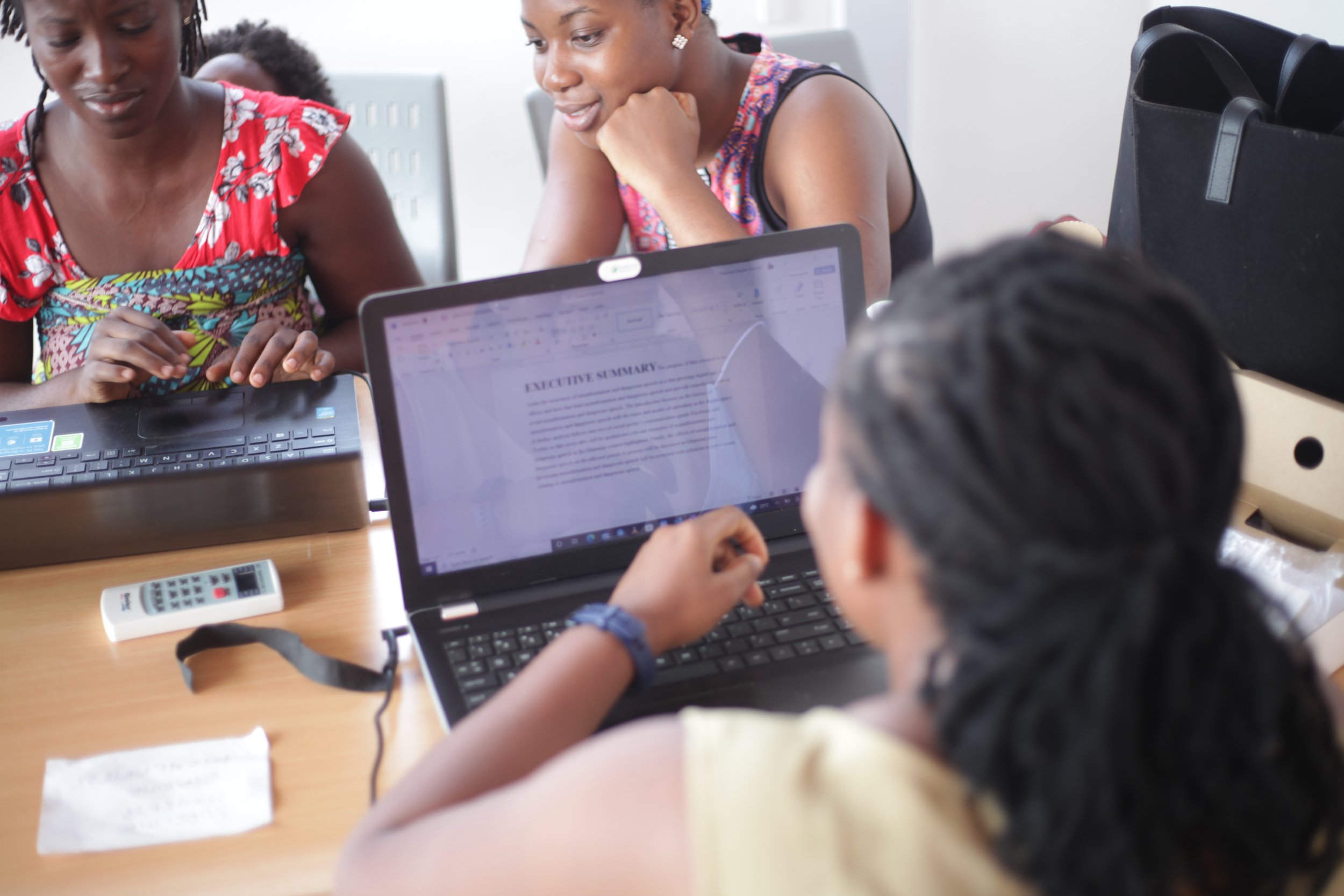Localizing the Ayeta Digital Rights Toolkit: Q&A with Richard and Doreen
Participants at the Ghana Localization Sprint working on the Ayeta Digital Rights toolkit.
In this exclusive Q&A, we sat down with the dynamic Ghana Sprint team to uncover the passion, challenges, and triumphs behind bringing the Ayeta Digital Rights toolkit to the Akan-speaking community. Discover how this collaboration fueled their mission to empower Akan language users with the tools to localize this resource and arm them with the knowledge to protect their digital rights.
Where did the idea of the Sprint in Accra come from and what did it take for this to happen?
Richard King: “The idea of a Ghana Sprint was born when Doreen, Theroso, myself, and others were at the Forum on Internet Freedom in Africa (FIFA) summit in Accra in 2018. Together with participants from Nigeria, Kenya, Tanzania, Uganda, Liberia, and Somalia, we participated in a Localization Sprint organized by Localization Lab. We thought we should have our version of the Sprint and lead localization with the community here. It was not until a year after that the topic came up again and Theorose suggested we start working on this - she just said ‘Richard, we can do it’. The journey began. We got in touch with others and through lots of commitment, dedication, and that same ‘we can do it’ spirit we made it happen. Our community-led Sprint happened in December 2021 with approximately 20 participants joining us and localizing Paradigm Initiative’s Ayeta Digital Rights Toolkit into the Akan language.”
How did you decide to localize the Ayeta Digital Rights Toolkit?
Richard King: “This was agreed by the team because of the contents of the documents. The contents of the Ayeta Digital Rights Toolkit addressed most of the issues affecting our everyday life in Ghana and in some other parts of the West Africa Sub-Region if not all, such as digital security on how to protect yourself against any form of online attacks, etc., So Ayeta became the choice of the people.”
What was your impression of the participants who joined the sprint? Are there any challenges/small successes or anecdotes that you would like to mention?
Doreen: “The participants were up for the challenge since this is a fairly recent toolkit and it gave everyone the chance to learn about how to protect and secure themselves both online and offline, in this era where almost everything is going virtual and digital and where risks are also on the rise. At times, it felt as if we were students in a class learning about Digital Security, and we enjoyed the collaborative aspect of translation and localization.”
Richard: “Participants felt at home as if we had known each other for a long time and there was this spirit of oneness, of working together for the same goal. People came from afar to do this work and certainly, we had issues with punctuality and electricity which delayed a little our work, but we adjusted and finished everything in the end.”
Why is it important for you and your community that this toolkit is available in Akan?
Doreen: “I grew up in an Akan community and my mother is a “Twi” teacher so I felt it was important to translate in a language that the people I grew up with can understand easily when I am educating them on the importance of digital security. Akan was also one of the most accessible and “go-to” language-based community media outlets in this country. So dissemination of this information would be easier when given to the local media houses we had partnered with.”
What will you consider ‘success’ or ‘impact’ once the Ayeta toolkit is available and made public in Akan? What are your hopes when it comes to how the community will use it?
Doreen: “Success is to see my people using information that was made available to them, in a language they understand and are comfortable with. As part of the process, we intend to do a few community-based education on the importance of digital rights and security and use the Ayeta Digital Rights Toolkit that we translated as part of this.”
Richard: “Now that Ayeta is available in our local language, people can access important information that allows them better to position themself against any form of online surveillance. The work doesn't stop here, we want to make the toolkit widely available and translate it into more languages that are underrepresented in the online space.”
The localization of the Ayeta Digital Rights toolkit into the Akan language was made possible by our Ghana contributors: Doreen Sulleyman, Obiajulu King Richard, and Theorose who facilitated the Localization Sprint in Ghana in collaboration with Localization Lab.



